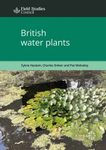About this book
Aquatic Functional Biodiversity: An Ecological and Evolutionary Perspective provides a general conceptual framework by some of the most prominent investigators in the field for how to link eco-evolutionary approaches with functional diversity to understand and conserve the provisioning of ecosystem services in aquatic systems. Rather than producing another methodological book, the editors and authors primarily concentrate on defining common grounds, connecting conceptual frameworks and providing examples by a more detailed discussion of a few empirical studies and projects, which illustrate key ideas and an outline of potential future directions and challenges that are expected in this interdisciplinary research field.
Recent years have seen an explosion of interest in using network approaches to disentangle the relationship between biodiversity, community structure and functioning. Novel methods for model construction are being developed constantly, and modern methods allow for the inclusion of almost any type of explanatory variable that can be correlated either with biodiversity or ecosystem functioning. As a result these models have been widely used in ecology, conservation and eco-evolutionary biology. Nevertheless, there remains a considerable gap on how well these approaches are feasible to understand the mechanisms on how biodiversity constrains the provisioning of ecosystem services.
Contents
Perspective: Functional Biodiversity during the Anthropocene
Section I. Theoretical Background
Chapter 1. From Metabolic Constraints on Individuals to the Dynamics of Ecosystems
Introduction
Individual Metabolic Rate, Biomechanics, and Fitness
From Individual Metabolism and Biomechanics to Interactions
From Interactions to Consumer–Resource Dynamics
From Consumer–Resource Pairs to Community and Ecosystem Dynamics
Conclusions
Abbreviations and Mathematical Symbols
Chapter 2. Ecological Effects of Intraspecific Consumer Biodiversity for Aquatic Communities and Ecosystems
Introduction
Case Studies
Meta-Analysis
Conclusions
Chapter 3. How Does Evolutionary History Alter the Relationship between Biodiversity and Ecosystem Function?
Introduction
Methods
Results
Discussion
Abbreviation
Chapter 4. Effects of Metacommunity Networks on Local Community Structures: From Theoretical Predictions to Empirical Evaluations
Introduction
Four Paradigms
Section II. Across Aquatic Ecosystems
Chapter 5. Limited Functional Redundancy and Lack of Resilience in Coral Reefs to Human Stressors
Introduction
Data Quality
Pattern of Change
Drivers of Change
Are Coral Reefs Functionally Redundant?
Solutions to Ensure Resilience
Concluding Remarks
Chapter 6. Biodiversity, Ecosystem Functioning, and Services in Fresh Waters: Ecological and Evolutionary Implications of Climate Change
Introduction
Chapter 7. Global Aquatic Ecosystem Services Provided and Impacted by Fisheries: A Macroecological Perspective
Introduction
Macroecological Variables and Their Interactions within Aquatic Ecosystems
A Central Challenge: Identifying Processes Underlying Macroecological Patterns
A Traits-Based Focus on Aquatic Functional Diversity
Ecological and Evolutionary Effects of Selective Fisheries on Aquatic Ecosystem Functioning
Chapter 8. Valuing Biodiversity and Ecosystem Services in a Complex Marine Ecosystem
Introduction
Materials and Methods
Results
Discussion
Conclusions
Section III. In the Wild: Biodiversity and Ecosystem Service Conservation
Chapter 9. The Role of Marine Protected Areas in Providing Ecosystem Services
Introduction
Introduction to Marine Protected Areas
Introduction to Ecosystem Services and the Link to Human Well-Being
Marine Protected Area Effects on Individual Ecosystem Services
Marine Protected Area Effects on Long-Term Ecosystem Function and the Provision of Multiple Services
Key Directions and Open Questions
Chapter 10. Freshwater Conservation and Biomonitoring of Structure and Function: Genes to Ecosystems
Introduction
Concluding Remarks
Epilogue: The Robustness of Aquatic Biodiversity Functioning under Environmental Change: The Ythan Estuary, Scotland
Index
Customer Reviews
Biography
Andrea Belgrano is currently at Swedish University of Agricultural Sciences, Department of Aquatic Resources, Institute of Marine Research, Lysekil, and at the Swedish Institute for the Marine Environment (SIME), Gothenburg, in Sweden. He has held faculty positions in the United States at the University of Maryland, University of New Mexico, University of Washington, and was a visiting scientist at the National Center for Genomic Research (NCGR), Santa Fe, New Mexico. Dr Belgrano is broadly interested in ecological and evolutionary studies that use ecosystem status and trend data, for characterising relationships between diversity patterns and ecosystem functioning, which includes the effect of commercial fisheries, climate change and environmental variability. His research approach is to use the broad concepts of macroecology, food webs theory and evolution to understand the underlying common rules governing ecosystem dynamics and functioning. Most of Dr Belgrano's current work focuses on functional biodiversity, ecosystem-based management for marine fisheries, ocean health, governance, sustainability and resilience in aquatic systems.
Guy Woodward is Professor of Ecology in the Department of Life Sciences at Imperial College London and Series Editor for Advances in Ecological Research. He has authored over 100 peer-reviewed publications, including recent papers in Nature, Science and Nature Climate Change, with a strong emphasis on understanding and predicting how aquatic ecosystems and food webs respond to a wide range of biotic and abiotic stressors, including climate change, chemical pollution, habitat degradation and invasive species. Much of this work covers multiple scales in space and time and also a range of organisational levels - from genes to ecosystems. His research group and ongoing collaborations span the natural and social sciences, reflecting the need for multidisciplinary approaches for addressing the environmental challenges of the 21st Century.
Ute Jacob is a Research Scientist at the Institute of Hydrobiology and Fisheries Science, University of Hamburg, Germany. She has contributed to previously published books as well as high-impact peer-reviewed journal articles. Dr. Jacob has been co-editor of two volumes of Advances in Ecological Research as well as a special issue of the Philosophical Transactions of the Royal Society, and is very active in this area of research.




















![Coraux Constructeurs de Récifs des Caraïbes [Coral Reef Builders of the Caribbean]](http://mediacdn.nhbs.com/jackets/jackets_resizer_medium/24/249211.jpg?height=150&width=99)














